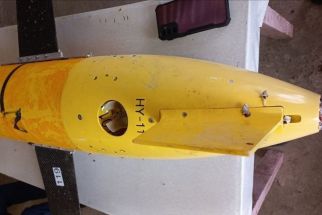140 abused OFWs in Saudi agree to legal deportation
ANGELES CITY – The 140 overseas Filipino workers (OFWs) who fled their alleged abusive employers in Saudi Arabia have appealed to the Philippine Consulate in Jeddah to take them into custody instead of surrendering them to their Saudi employers while the displaced workers undergo deportation proceedings.
Jonathan Panlilio, spokesman for Migrante International, told The STAR that the number of OFWs who have been stranded in Saudi Arabia and sought assistance from the Philippine consulate had increased to 179.
He said the Department of Foreign Affairs reported that about 30 OFWs, mostly women, were deported to the Philippines last Tuesday.
An email from Andrew Ociones, chairman of Migrante-Kingdom of Saudi Arabia, said that the stranded OFWs have agreed to the proposal of Philippine consul general Ezzedin Tago that they undergo the deportation process instead of being repatriated.
The workers, however, urged the consulate to take the OFWs under their custody and not surrender them to their former employers.
The OFWs had initially sought shelter under the Al Khandara Bridge in Jeddah from January to Feb. 3 when they moved to a camp near the Philippine consulate.
The OFWs were among the foreign workers that fled their allegedly abusive employers and pitched camp under Al Khandara Bridge.
The workers initially appealed to the Deportation Office of the Kingdom’s Immigration Police in Jeddah to repatriate them, but they complained that fixers told them they have to pay the Immigration Police before they are repatriated.
Migrante sought the help of the Philippine consulate in Jeddah last Jan. 17.
Meanwhile, a Church leader has cited the efforts of the Manila Economic and Cultural Office (MECO) for continuously promoting the interests of OFWs and setting up a migrant workers’ center in Central Taiwan.
Rev. Joy Tajonera, a Maryknoll priest, said the OFW center serves as sanctuary for rest, learning and praying during their day-off.
Tajonera said it was his mission to help give Filipinos in central Taiwan a facility they could truly call their own, and that was made possible by MECO.
The Filipinos thanked MECO’s representative to Taiwan Antonio Basilio for setting up the OFW Center, called Ugnayan Migrant and Immigration Center. The six-story building has a Catholic chapel, an activity center, a spacious kitchen and dining area, and at least eight beds. It is located near Taichung County’s Tantzu Export Processing Zone and the Tantzu Train Station. About 3,000 Filipinos live and work in the area.
Tajonera founded the migrant community in Tantzu in 1998 when he was then a seminarian studying Chinese in Taichung.
“The Filipinos working in that area were virtual orphans. They had no social centers, no chapel and no community programs. Now that we have Ugnayan, they can cook the food they want whenever they are off work,” Tajonera said.
When Tajonera returned to Taiwan from the US in December 2004, he started a migrants’ ministry in Tantzu, which was eventually approved by Maryknoll and the bishop there. The ministry celebrated its third anniversary last Dec. 16.
To get their own place, at least 500 of his parishioners pledged to donate NT$100 per month to the Ugnayan fund, which they used in scouting for a building in April 2004.
Tajonera said MECO was among those who shared their resources so that they could lease a building to be used as a migrant center for OFWs.
Basilio said Tajonera and Ugnayan are making a tremendous impact on the lives of Filipinos in Taiwan.
“This home away from home has made it easier for our kababayans to adjust to a foreign environment. It has also provided them with an invaluable support network and resource center in Taichung,” he added.
Nongovernment organizations like Ugnayan are among MECO’s best partners in Taiwan.
MECO announced that it will be offering training and livelihood programs, counseling services and networking programs at Ugnayan in the coming months.
The projects will match Tajonera’s existing reintegration and family relations programs for OFWs.
In a related development, recruitment consultant Emmanuel Geslani called on the government to shelve the new policy on the direct hiring of OFWs, saying that this will “turn off” potential foreign employers.
In a press statement, Geslani warned that the new system would only undermine OFWs who seek out their own employers.
The Philippine Overseas Employment Administration (POEA) had recently issued Memorandum Circular No. 4, requiring foreign employers to post $5,000 in repatriation bond and a performance bond that is equivalent to the three-month salary of ordinary OFWs that they want to hire.
The POEA, however, decided to exempt employers from countries where such “protection mechanism” is already in place. – With Pia Lee-Brago, Sheila Crisostomo, Rainir Padua
- Latest
- Trending






























